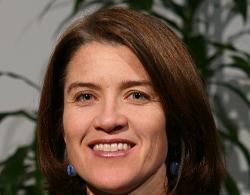 Alexia Kelly is the new president of a prominent Catholic fundraising office in Dupont Circle, Washington, DC.
Alexia Kelly is the new president of a prominent Catholic fundraising office in Dupont Circle, Washington, DC.
Ms Kelley holds a Masters degree in theology from Harvard Divinity School is reportedly committed to dialogue with others for the sake of advancing the common good, and interested in Catholic charitable works. Her resume includes being a former employee of the Catholic Campaign for Human Development; the executive director of Catholics in Alliance for the Common Good; the Deputy Director and Senior Policy Advisor for the Whites Office for Faith-Based and Neighborhood Partnerships; and the First Lady’s Office, for whom she launched Let’s Move Faith and Communities. Most recently Kelley’s been the director of the Faith-Based and Neighborhood Partnerships at the HHS.
Kelley co-edited with Dr. Kathleen Maas Weigert Living the Catholic Social Tradition: Cases and Commentary (Rowman & Littlefield, 2005). And with Chris Korzen Kelley authored A Nation for All: How the Catholic Vision of the Common Good Can Save America from the Politics of Division (2008).
Reports say Alexia Kelley is not pro-abortion and that she has worked on projects that Catholics hold most dear, that is, matters pertaining to pro-life. Kelley has had a very close working relationship with the Democratic National Committee –and several other high profile “Catholic Democrats” — and with what may be perceived as left-leaning Catholics. Alexia Kelley is nonetheless a supported of pro-abortion politicians like Kathleen Sebelius, some of whom are Catholic, others not, but who have been a part of the Democratic political machine. Kelley’s political engagement includes being a part of an administration that is known for the overturn of policies that protect life like the Mexico City Policy and those which reject funding for embryonic stem cell research.
Common ground initiatives seem to be a good thing in an age of ruthless politics and character assassinations. Alexia Kelley does bring a high level skill-set to the table for a Catholic mission that is badly needed. Her past work is past; her current work for FADICA will face its own challenge and hope for the present needs and future hopes.
The Foundations and Donors Interested in Catholic Activities (FADICA) was formed in 1975 working with and profiling Catholic funding agencies who are financially useful for schools, parishes, service and cultural enterprises. FADICA networks Catholic philanthropists, foundations and donors with an idea to support Catholic causes. Their catalogue is pricey yet useful.
A hand extended in friendship and good colleagueship is an essential value today for Catholic projects, more than ever as the complexities of our common existence rise.